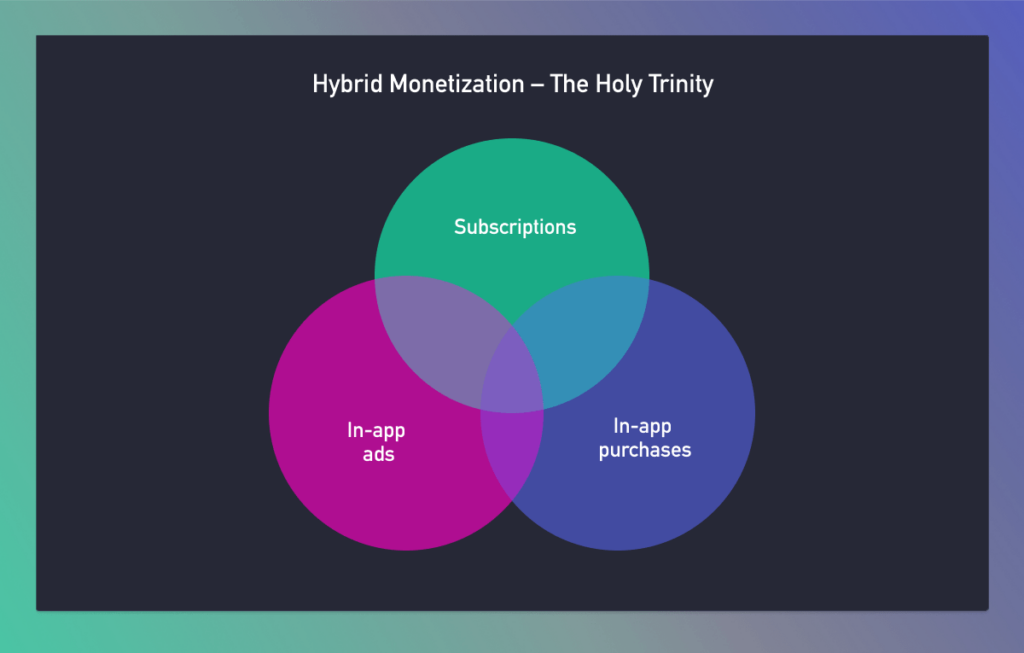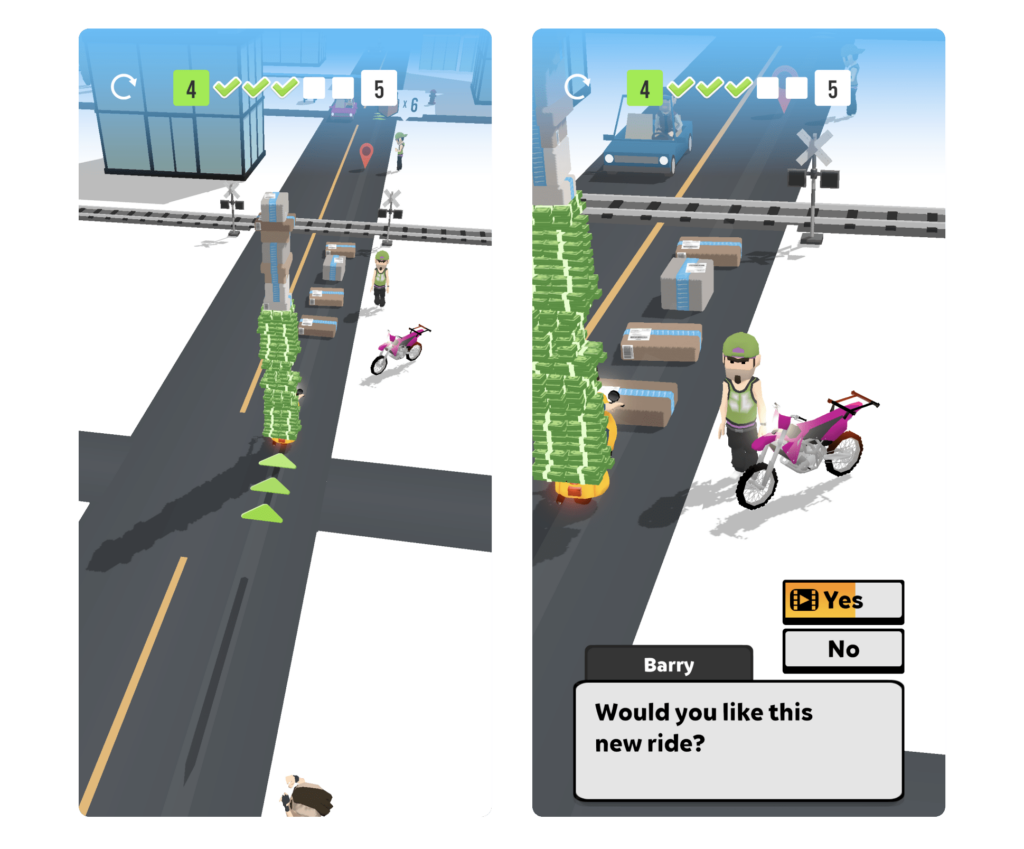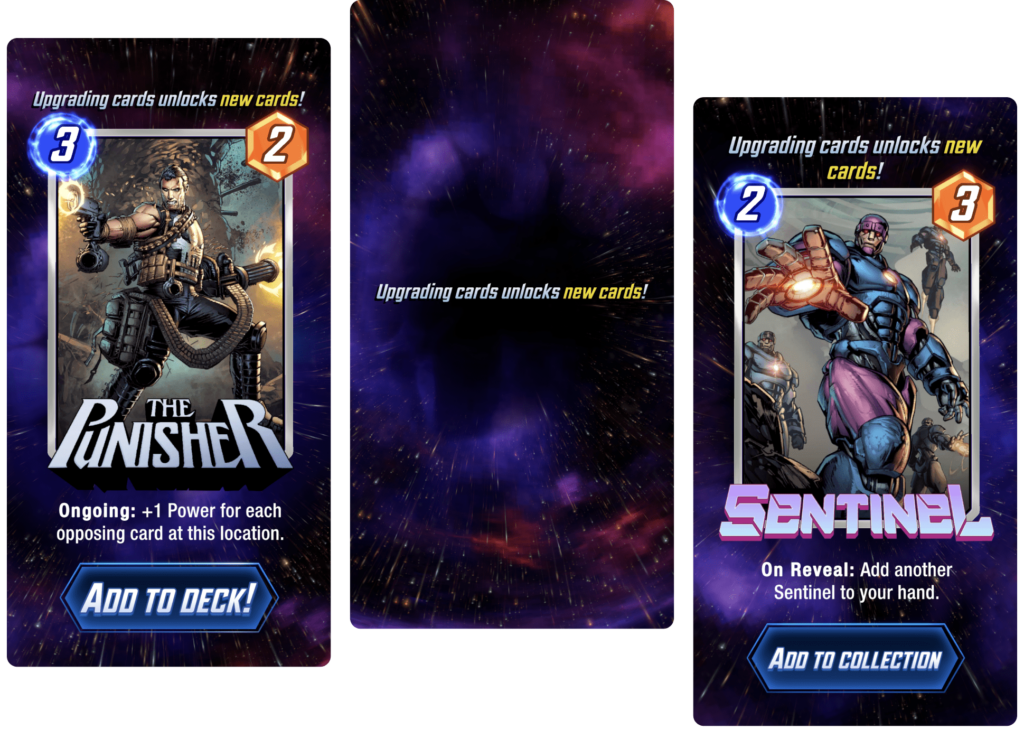
If there’s only one road into town, everything comes to a standstill when a tree blocks the way. The same is true of business. With only one source of revenue, the whole company comes to a halt if that source dries up.
Many game studios have relied solely on a single strategy – typically advertising – to make their money. But as times change, we’ve seen a shift in the market. More and more studios have realized that they need more than one road into their village.
It’s called hybrid monetization. It’s not new, and it’s now become necessary. But why? And what can we expect to change in 2023 because of it? Here are our predictions for the year to come.
What is hybrid monetization?
Hybrid monetization is where a game studio finds multiple ways to make money – getting more value from each individual player. Typically, studios use the holy trinity:
- In-app purchases.
- In-app ads.
- Subscriptions.

These three tactics help level out the highs and lows when using any single strategy. If their in-game ads don’t perform so well, their subscriptions can pick up the slack. And vice versa.
1. Hybrid monetization will become the norm
As Google drills down on intrusive ads, and Apple’s updates their privacy policy, developers have realized that they can’t rely on any single source forever.
Lootboxes, for example, have been under a lot of scrutiny for a long time now. Many countries deem lootboxes as gambling, enforcing similar restrictions on them. Others, like Japan, have banned them outright. Likewise, Google and Apple have been adding more restrictions to their policies around how and when studios can show their players ads.
The only way studios will survive in the shifting market is to branch out. So it’ll be no surprise that in 2023, we predict that the majority of gaming studios will be using a hybrid monetization strategy.
2. New models and revenue streams will emerge
We’ve already spoken about the holy trinity. But we believe that we’ll see different models begin to emerge, too.
Audio advertising is one such revenue stream – playing the equivalent of a radio ad during the game, which lets the player continue without interrupting the experience. We’ve also seen more and more sponsored content entering into games – from ads on in-game billboards to branded buildings and vehicles.

Another approach has been with rewarded ads. In the past, we mainly saw studios use rewarded ads to give an extra life or more coins. But we’re now seeing games use them to unlock extra content. For example, Homa Games uses a rewarded ad in Aqualand to let players upgrade their vehicles. While Voodoo, in their delivery game, Deliver It 3D, lets players upgrade their bike.
3. Studios will offer different tiers to players
That holy trinity is also changing. For example, we’ve seen that studios offer players different tiers of subscription for different benefits. There are four main tiers of subscription that studios can offer:
- Ad-less. The most basic level. The player pays to stop any ads, but doesn’t typically get any other benefits.
- Queue-skip. Coins, energy, gems. Those mechanics that slow the player down, so they have to play a certain amount before they can continue. Queue-skipping lets players jump to where they always have enough coins or energy to keep playing.
- Battlepass. As the player levels up, they get more and more rewards. Which encourages them to keep playing.
- VIP. The tier that brings a level of prestige. Players get everything from the other tiers, but also added benefits like having your name enter the game, a bigger inventory, or free tokens to enter PvP contests.
Quite a few of these tiers overlap with in-app purchases. But the key to their success – whether it’s a one-off purchase or a subscription – is that it shouldn’t give a player a distinct advantage.

Marvel Snap balances this well, for example. While it’s beneficial for players to spend money to unlock cards faster, it’s perfectly possible to unlock all the cards by just playing matches. It just takes longer. (They also matchmaker based on three distinct pools, based on how many cards the player owns. Players from pool one don’t get matched with players from pool three.)
4. Umbrella subscriptions will emerge
With ad campaigns becoming less lucrative, publishers and studios have been turning to mergers and acquisitions instead – looking to build a bigger portfolio of games.
But it’s counter-productive to have a subscription for every single game. People can only pay so much a month, so it’s important for developers to keep that player within their own ecosystem.
Once publishers have enough games, it makes sense to offer an umbrella subscription – which gives benefits across their games. This encourages players to stay within your game and not hop over to a competitor. But it also adds more value to the subscription itself, making it a more enticing prospect.
5. Studios will need data warehouses to keep track
The more complicated and varied a studio’s monetization model becomes, the more powerful their tools will need to become. Different players prefer different models – some will watch ads, others will subscribe.
So you’ll end up with different groups of players. And if you have one group of players who only watch ads and another group that only ever uses subscriptions, you need to know how your changes affect both groups. If you’re building an ecosystem, you need to know how changes in one game effects your entire portfolio.
Data is gold here. And the only way to bring all that data together and understand how it all relates is by using a data warehouse for games. So we’ll likely see a surge in demand for advanced analytics and testing.
Use data to stay ahead
The only consistent trend is that things always change. What we see today – the models that work and the strategies that bring in the most money – could be entirely different tomorrow.
If you’re looking for more flexible ways to access and process your raw gameplay data then this is all possible with our range of DataSuite tools. And we recently announced Private Instance – where you can bring our technology into your own setup.
Get in touch with us if you have any questions, or want to learn more about how we can help you.